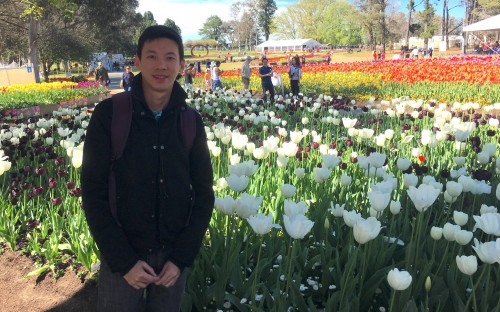A full-time MBA student at UNSW’s Australian Graduate School of Management (AGSM), Yohanes used an MBA entrepreneurship class to look to tackle issues relating to Australia’s aging population. He came up with a business model, to employ university students to provide companionship and care for the elderly.
At AGSM, he was supported by an entrepreneurial environment with close links to Sydney’s vibrant start up scene and the wider Asia-Pacific region. UNSW’s Center for Innovation and Entrepreneurship hosts international pitching competitions and challenges for budding MBA entrepreneurs.
AGSM boasts a 10,000-strong alumni network extended across 68 countries worldwide. One in five of the school’s alumni are in VP positions or higher in their organisations. Among them, potential business partners, mentors, and investors.
Currently on international exchange at Dartmouth’s Tuck School of Business in the US, Yohanes has put his entrepreneurial project on pause – although requests from students interested in getting involved keep coming in.
Yohanes – who spent five years in finance before business school – is considering his career options across a range of industries. One option: to return to his startup project, make a social impact, and take the leap into entrepreneurship full-time.
How did the idea for Care For Your Elderly come about?
The idea of this start up came up when some of my friends and I took the Entrepreneurship class during our MBA program. Care For Your Elderly was the final ‘product’ that we pitched to the potential investors at the end of the second semester after we pivoted our ideas so many times.
We noticed that there is a huge potential in the aged-care industry in Australia. The number of Australians aged 65 and over is expected to increase exponentially from 2.5 million in 2002 to 6.2 million in 2042, and home care services are the preferred solution for 90% of the population.
Where are you at right now with your project?
After winning the UNSW Entrepreneurship Pitch Competition 2016, my team worked hard to build a solid platform for the business as well as to find our first paying customers to further validate and test our business model.
We continually received interest from university students who wanted to work for the company as an elderly companion. However, as my partner and I had to depart on our international exchange program, we had no choice but to pause the project for a while. We might continue it again in the near future and try to pick up where we left off.
How have you been supported by the school?
Entrepreneurship and Innovation are big things in AGSM. And the school is very supportive in facilitating our start up to get up off the ground.
Not only has AGSM helped us get connected to many potential investors by giving us so many opportunities to pitch our idea to them, but it’s helped widen our networks in the entrepreneurial space. We’ve been introduced to venture capitalists, incubators, lawyers, and other successful entrepreneurs. Furthermore, as part of the university’s innovation community, we’re constantly being updated with a lot of news and updates in this ecosystem.
Why did you decide to pursue an MBA at AGSM?
When I submitted my MBA application to AGSM, I was in the process of changing my course from the Master of International Hotel Management (MIHM) program to the MBA program at another university in Sydney.
During the process, I also looked up for other business schools in Australia that would match my time schedule and my interest. I wanted to start the new program in January and AGSM was the perfect fit for my needs. Plus, as the international exchange program of AGSM was so much better than that of other business schools, I decided to pursue my study here.
What stands out from your AGSM MBA experience?
Without a doubt, the diversity and the size of my cohort are the highlights of my MBA experience. My cohort consists of a bunch of talented people from 16 different countries.
Compared to the other top 100 business schools in the world, my cohort might be one of the smallest MBA groups. This is actually an advantage for us as, not only are we are becoming very close, we are also able to go deeper and share our knowledge and experiences with each other. I would say that the friendships that we’ve built during the program are lifetime investments.
RECAPTHA :
90
44
cf
be








